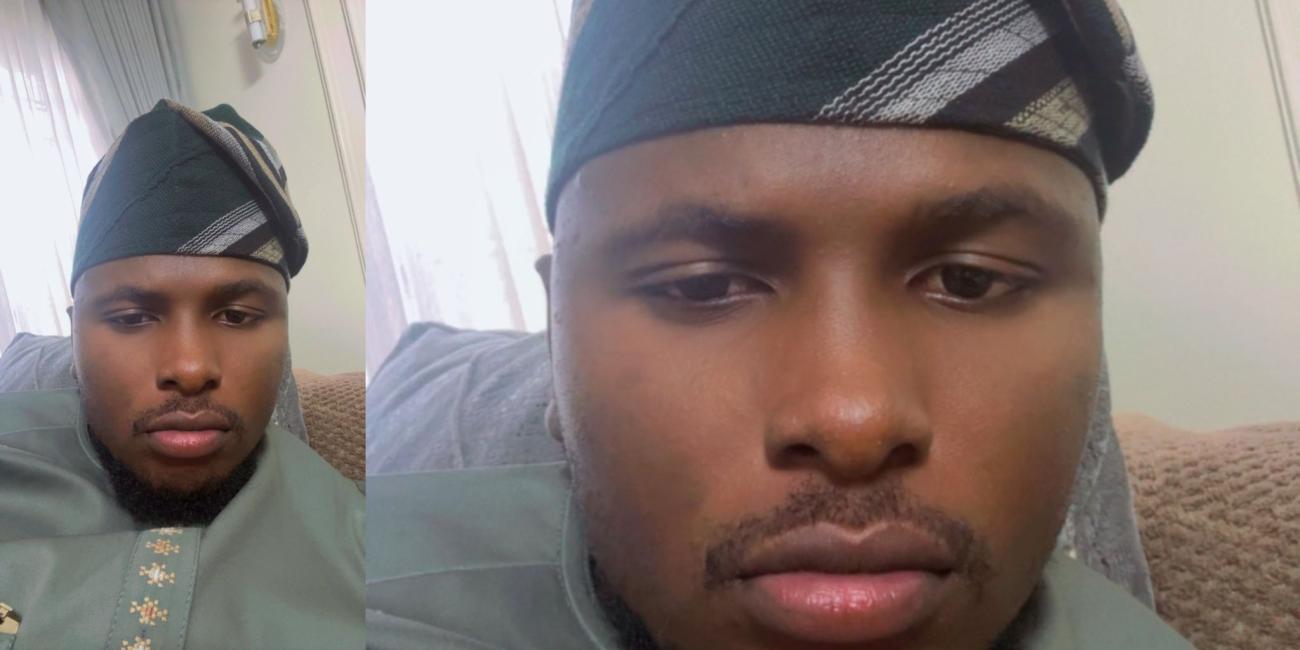Imran U. Wakili, a resident of Kaduna State, Nigeria, has publicly expressed concerns about his personal safety after receiving a summons from the Department of State Services (DSS) in Kaduna.
In a detailed statement shared on his verified X account on Monday, June 16, 2025, Wakili revealed that he was invited by the DSS without any explicit explanation for the summons.
He strongly believes that this action is directly connected to his vocal and consistent criticism of the policies and governance of the administration led by Governor Uba Sani.
Wakili has been an outspoken critic of the Kaduna State government, regularly using his platform to highlight what he perceives as shortcomings in the state’s leadership and decision-making processes.
He suspects that his public commentary, which has often focused on issues such as mismanagement and lack of transparency, is the primary reason for the DSS’s interest in him.
Over the past year, Wakili has faced what he describes as relentless intimidation, including threatening phone calls and messages warning him to cease his public critiques of the government. These threats have significantly disrupted his daily life, forcing him to limit visits to his business to brief weekly appearances out of fear for his safety.
In his statement, Wakili shared his frustration and resolve, saying, “My dear friends, family, followers, and everyone who cares about justice, I have been invited by the Department of State Services, Kaduna Directorate.
They haven’t provided a clear reason for this summons, but I strongly believe it’s tied to my outspokenness about the Kaduna State government’s policies and actions. For over a year, I’ve been receiving threatening calls and messages, warning me to stay silent and stop pointing out the wrongs I see.
This has made it nearly impossible for me to operate my business without fear. I can only visit my shop briefly once a week before leaving quickly to avoid trouble.”
Despite the challenges, Wakili remains steadfast in his commitment to advocating for better governance.
He emphasized that his criticism stems from a deep belief that speaking out against perceived injustices is essential for progress. “I wouldn’t be going through all of this if I could simply ignore what the government is doing, but I cannot stay silent when I believe wrongs are being committed. Speaking up is how we make things right,” he stated.
He further argued that a truly democratic government should welcome constructive criticism, using it as an opportunity to improve and better serve its citizens. “A good government shouldn’t fear criticism. It should listen, learn, and use it to serve the people better.
That’s what democracy is about—holding leaders accountable so they act in our best interests. I’ve always believed this, and I still do, no matter how much pressure I face,” he added.
Wakili expressed hope that the DSS, as a respected institution, would handle his case with fairness and integrity. “I’m attending this meeting because I trust that the DSS operates with professionalism and justice. It would be deeply disappointing to discover otherwise,” he noted.
He also confirmed that he would be accompanied by a lawyer to ensure that the process is transparent and conducted according to legal standards. “I’ll show up, answer their questions honestly, and continue standing up for what’s right: better governance and transparency for Kaduna State. I’m doing everything by the book,” he assured.
Wakili framed his situation as part of a broader struggle for the right to free expression and accountability in governance. “This isn’t just about me. It’s about all of us having the right to speak out without fear. It’s about ensuring our leaders are answerable to us, the people. If this is the price of standing for what’s right, I’m ready to pay it,” he declared.
He called on his supporters to keep him in their thoughts and prayers as he navigates this challenging situation, promising to provide updates as events unfold. “Your support means everything to me, and I’m so grateful for you all, with all my heart,” he said, concluding with a call to continue advocating for a Kaduna State where citizens’ voices are heard and respected.
Wakili’s criticisms of Governor Sani’s administration have been well-documented. Recently, he alleged that the governor approved N4.6 billion for the purchase of vehicles for local government chairmen, a decision he questioned in light of other pressing needs in the state.
Additionally, in a post on June 11, 2025, Wakili shared an article titled “Response to the Misleading Report on Water Scarcity in Kaduna: El-Rufai Cannot Be Blamed for Administration’s Incompetence.”
In the article, he sharply criticized the current administration’s handling of the state’s water sector, pointing out that despite claims of injecting ₦100 billion into reviving the sector, water scarcity remains a significant issue in areas such as Barnawa, Rigasa, Kawo, and Zaria.
“Residents in these areas still rely on water vendors and wells. What happened to the ₦100 billion? Is it being spent on social media propaganda instead of pipelines?” the article questioned, highlighting what Wakili perceives as a lack of accountability and effective resource allocation by the state government.
Wakili’s case has drawn attention to the broader issue of freedom of expression in Kaduna State and the challenges faced by citizens who publicly critique those in power. His determination to continue speaking out, despite the risks, underscores his commitment to fostering transparency and accountability in governance.
As he prepares to face the DSS, his situation serves as a reminder of the importance of protecting the right to free speech and ensuring that citizens can hold their leaders accountable without fear of retribution.


